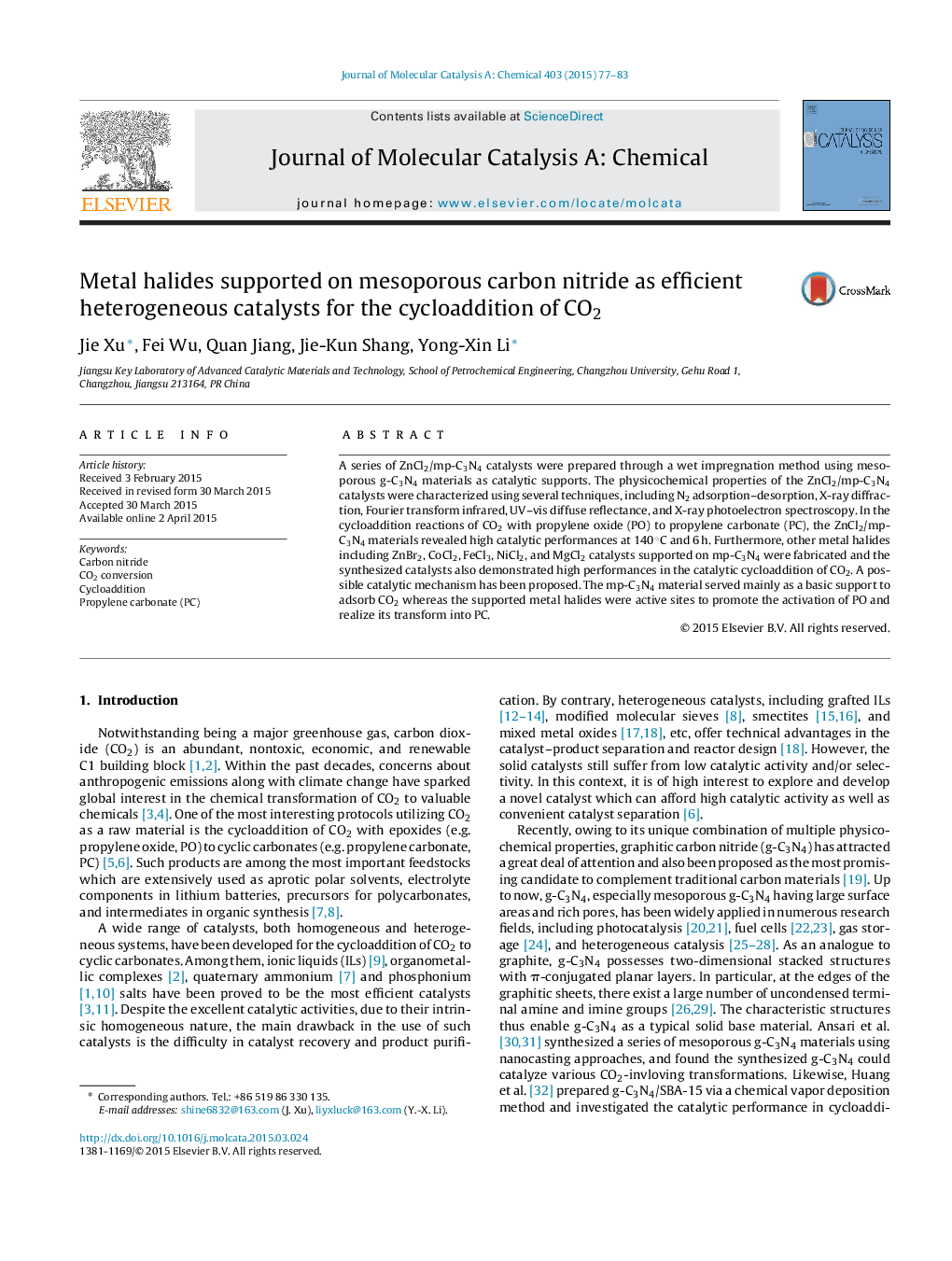| کد مقاله | کد نشریه | سال انتشار | مقاله انگلیسی | نسخه تمام متن |
|---|---|---|---|---|
| 65034 | 48379 | 2015 | 7 صفحه PDF | دانلود رایگان |

• Metal halides were supported on mp-C3N4 supports via simple impregnation methods.
• Metal halide was essentially active sites to activate propylene oxide molecule.
• Various supported metal halides showed high performances in cycloaddition of CO2.
A series of ZnCl2/mp-C3N4 catalysts were prepared through a wet impregnation method using mesoporous g-C3N4 materials as catalytic supports. The physicochemical properties of the ZnCl2/mp-C3N4 catalysts were characterized using several techniques, including N2 adsorption–desorption, X-ray diffraction, Fourier transform infrared, UV–vis diffuse reflectance, and X-ray photoelectron spectroscopy. In the cycloaddition reactions of CO2 with propylene oxide (PO) to propylene carbonate (PC), the ZnCl2/mp-C3N4 materials revealed high catalytic performances at 140 °C and 6 h. Furthermore, other metal halides including ZnBr2, CoCl2, FeCl3, NiCl2, and MgCl2 catalysts supported on mp-C3N4 were fabricated and the synthesized catalysts also demonstrated high performances in the catalytic cycloaddition of CO2. A possible catalytic mechanism has been proposed. The mp-C3N4 material served mainly as a basic support to adsorb CO2 whereas the supported metal halides were active sites to promote the activation of PO and realize its transform into PC.
Figure optionsDownload high-quality image (130 K)Download as PowerPoint slide
Journal: Journal of Molecular Catalysis A: Chemical - Volume 403, July 2015, Pages 77–83